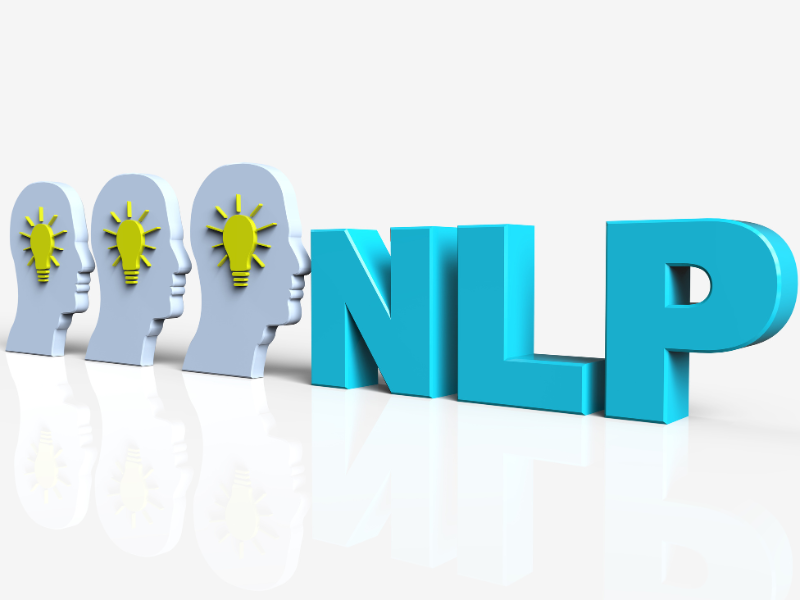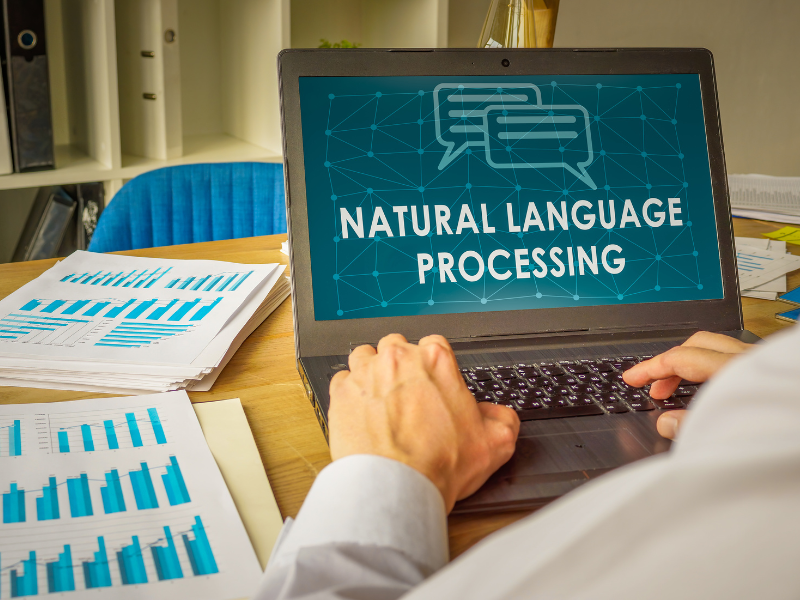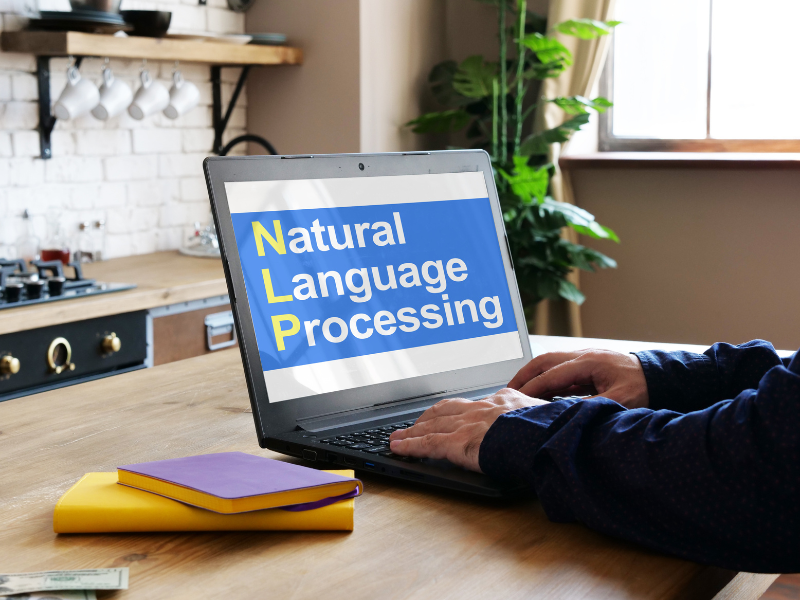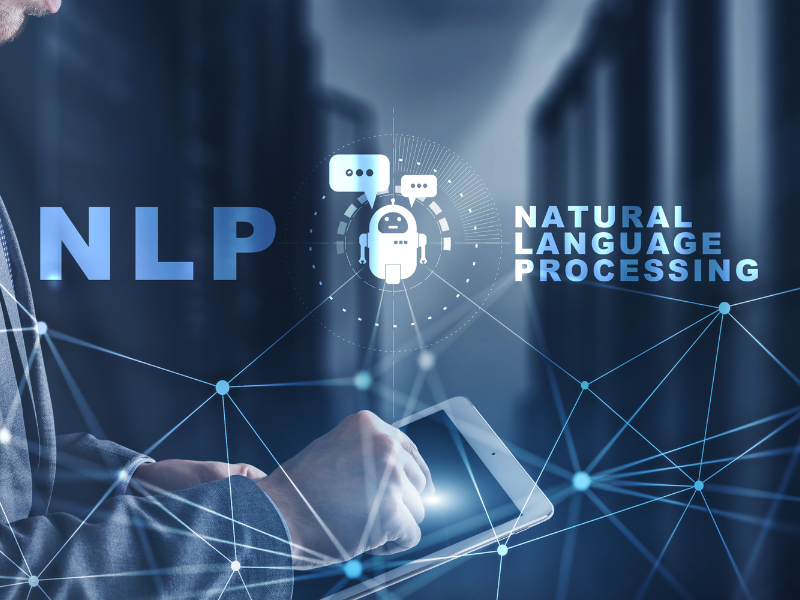SEO Meta Description: Explore the remarkable AI advances in Natural Language Processing (NLP) and discover how this groundbreaking technology is revolutionizing the way we interact with machines. From machine translation to sentiment analysis, this comprehensive article delves into the intricacies of NLP and its transformative impact on various industries.
Introduction
In recent years, AI advances in Natural Language Processing (NLP) have captivated the world with their ability to bridge the gap between humans and machines. NLP, a subfield of artificial intelligence, focuses on enabling computers to understand and process human language in a meaningful way. With the ever-increasing volume of textual data available, NLP has become a crucial technology in our everyday lives, revolutionizing industries such as healthcare, finance, customer service, and more.

In this article, we will delve into the fascinating world of AI advances in Natural Language Processing (NLP), exploring its applications, challenges, and future prospects. Get ready to embark on a journey that will shed light on how NLP is transforming the way we communicate and interact with machines.
AI Advances in Natural Language Processing (NLP): An Overview
Natural Language Processing (NLP) involves a range of techniques and algorithms that enable machines to understand, interpret, and generate human language. From text classification and sentiment analysis to machine translation and chatbots, NLP has made significant strides in improving language understanding and communication between humans and machines.

With the advent of AI and machine learning technologies, NLP has witnessed unprecedented advancements, enabling computers to tackle complex linguistic challenges with remarkable accuracy. Let’s explore some of the key areas where AI has transformed NLP:
1. Sentiment Analysis: Decoding Emotions with AI
Sentiment analysis, also known as opinion mining, is an important application of NLP that involves determining the sentiment expressed in a piece of text, whether it is positive, negative, or neutral. With AI advances in Natural Language Processing (NLP), sentiment analysis has become more sophisticated and accurate, allowing businesses to gain valuable insights from customer feedback, social media posts, and online reviews.

Using machine learning algorithms, NLP models can now analyze large volumes of textual data, deciphering nuanced sentiments and emotions with astonishing precision. This capability has empowered organizations to make data-driven decisions, enhance customer experiences, and even detect potential brand crises before they escalate.
2. Machine Translation: Breaking Language Barriers
Machine translation has been a long-standing goal in the field of NLP, and recent AI advances have brought us closer to achieving accurate and fluent translations between languages. With the help of neural machine translation models, AI systems can now learn to translate text by training on vast amounts of multilingual data.
The introduction of deep learning techniques, such as recurrent neural networks and transformer models, has significantly improved the quality of machine translations. These models, fueled by powerful computing resources, have the ability to learn intricate language patterns and produce translations that are increasingly natural-sounding and contextually accurate.
3. Chatbots: Enhancing Customer Interactions
Chatbots have become ubiquitous in the customer service industry, providing quick and efficient support to users around the clock. AI-powered chatbots leverage Natural Language Processing (NLP) to understand and respond to user queries and requests in a conversational manner.
Through the integration of voice recognition and sentiment analysis, chatbots can now provide personalized experiences, offer product recommendations, and even resolve complex issues. With advancements in NLP, chatbots have become more intelligent, capable of handling natural language inputs, understanding user intent, and providing accurate and timely responses.
4. Text Summarization: Extracting Key Information
With the exponential growth of digital content, the ability to extract essential information from large volumes of text has become increasingly important. Text summarization, a field within NLP, focuses on automatically generating concise summaries that capture the key points of a document.
Through the application of AI algorithms, NLP models can now analyze the structure and content of text, identifying important sentences and extracting the most relevant information. This capability is particularly beneficial in domains such as news aggregation, research, and content curation, enabling users to quickly grasp the essence of lengthy documents without reading them in their entirety.
5. Speech Recognition: Transforming Voice to Text
Speech recognition, a fundamental component of NLP, enables machines to convert spoken language into written text. With recent AI advances, speech recognition systems have reached impressive levels of accuracy and can handle a wide range of accents, dialects, and languages.
Powered by deep learning algorithms and vast amounts of training data, NLP models can now transcribe speech with remarkable precision, paving the way for applications like voice assistants, transcription services, and voice-controlled devices. The seamless integration of speech recognition and NLP has revolutionized the way we interact with technology, allowing us to communicate with machines using our natural voice.
FAQs about AI advances in Natural Language Processing (NLP)

Q: What are the challenges and limitations of Natural Language Processing (NLP)? A: While AI advances in Natural Language Processing (NLP) have achieved impressive milestones, the field still faces several challenges and limitations. Some of the key challenges include accurate understanding of context, handling ambiguity in language, and ensuring ethical use of NLP technologies. NLP models often struggle with interpreting sarcasm, irony, or subtle nuances, leading to errors in analysis and interpretation.
Q: How does NLP improve customer experiences? A: NLP plays a crucial role in enhancing customer experiences by enabling businesses to analyze customer feedback, sentiment, and preferences. With the help of sentiment analysis, companies can gain valuable insights into customer satisfaction levels, identify potential issues, and tailor their products and services accordingly. Additionally, the integration of chatbots powered by NLP allows for efficient and personalized customer support, enhancing the overall customer experience.
Q: What is the future of AI advances in Natural Language Processing (NLP)? A: The future of AI advances in Natural Language Processing (NLP) holds tremendous potential. As technology continues to evolve, we can expect more accurate and robust NLP models capable of understanding human language with even greater precision. With the rise of voice assistants, translation services, and smart home devices, NLP will become an integral part of our daily lives, seamlessly facilitating communication and interaction with machines.
Q: How can NLP improve healthcare? A: NLP has numerous applications in the healthcare industry, ranging from clinical documentation and patient monitoring to medical research and drug discovery. By analyzing medical records, NLP models can extract vital information, identify patterns, and provide valuable insights to healthcare professionals. Moreover, NLP-powered chatbots can assist in triaging patients, answering common medical questions, and offering pre-diagnostic suggestions, thereby improving patient care and reducing the burden on healthcare providers.
Conclusion
AI advances in Natural Language Processing (NLP) have propelled the field into new realms, revolutionizing the way humans interact with machines. From sentiment analysis and machine translation to chatbots and text summarization, NLP has permeated various industries, enabling businesses to harness the power of language for enhanced customer experiences, data-driven decision-making, and innovative applications.
As we continue to witness rapid advancements in AI and machine learning, the future of NLP appears promising. With further research and development, we can look forward to even more human-like and contextually aware NLP models that will serve as invaluable tools in bridging the gap between humans and machines, opening new possibilities for communication, productivity, and understanding in the years to come.
So, embrace the AI advances in Natural Language Processing (NLP) and get ready to witness the transformative power of words, as machines decode and comprehend human language like never before.

